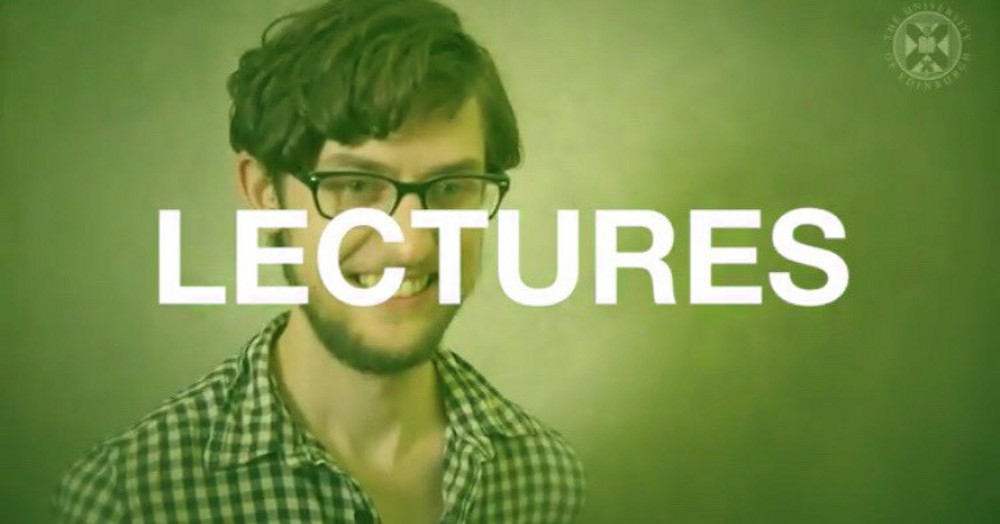 This week’s installment from the Near Future Teaching project tackles the teaching method which is – arguably – the signature pedagogy of higher education, and one which emerged strongly from the interviews, focus groups, and events we conducted as part of the project: lectures. Lectures have also been the subject of a few previous Teaching Matters posts and a topic for current funded research as part of the Principal’s Teaching Award Scheme at Edinburgh.
This week’s installment from the Near Future Teaching project tackles the teaching method which is – arguably – the signature pedagogy of higher education, and one which emerged strongly from the interviews, focus groups, and events we conducted as part of the project: lectures. Lectures have also been the subject of a few previous Teaching Matters posts and a topic for current funded research as part of the Principal’s Teaching Award Scheme at Edinburgh.
Lectures have been a core practice in universities for centuries. While there has been debate around their role in modern higher education in light of recent research, which positions them as ineffective pedagogical instruments, there have been equally passionate and compelling defences made for them. The purpose of this post is to present how students and staff feel about the role of lectures in their interviews. We highlight their divergent views, which cover issues of contact hours, relevance, effectiveness, and enhancement.
Some suggest that the lecture will eventually cease to exist, while others perceive a positive advantage in not attending lectures:
I go to lectures because I feel like I should. But when it comes to revision, I don’t feel like I know any of it and I have to start again…Because for me, anyway, and from what other people have said, it just doesn’t work. I almost wished I had done it sooner, like this year I have been going to less lectures and I’ve actually done better.
– Lucy Everitt, BSc Biological Sciences (Genetics)
Where a future for the lecture is foreseen, it is often focused on technological enhancements which expand its range and make it more useable:
Lectures are going to move more towards the digital and towards online. And I think that can actually can also be very useful. … What if you have one platform where on the one hand you have the lecturer talking and then next to that pops up all the different links you can follow and what he’s talking about. That’s a very near thing we can already implement now…– Charlotte Rixten, MSc Collections and Curating Practices
However, as with many of our themes, utility and pedagogy are placed within the broader landscape of higher education politics: here, lectures correlate to precious contact time and therefore to the value of a university education:
Well, firstly, there is like a strong consensus or feeling throughout the student body that there’s too few contact hours. And I think if we added lecture recording or more technology as a replacement, then that would only sort of add fuel to the fire that they’re not getting sort of the service in which they’re paying for.
– Bobi Archer, Edinburgh University Students’ Association
So lectures and their role in the near future of digital education at the University of Edinburgh occupy a contested space. A method, while argued by some to be out of step with modern approaches, still has a strong and lasting symbolic importance for the way in which we think about the near future of teaching.

